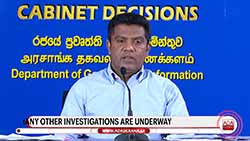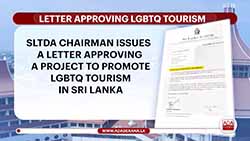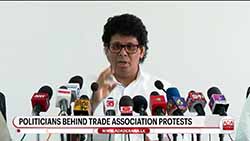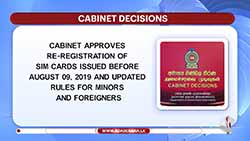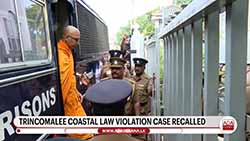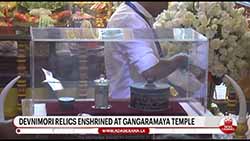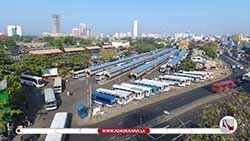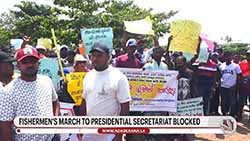Ambassador Aryasinha responds to draft resolution on Sri Lanka
September 21, 2015 07:21 pm
I am sure that all of you, who have watched the country closely, are aware of all the changes Sri Lanka had after the January 8 election victory, Intervention by Ambassador Ravinatha Aryasinha, Permanent Representative of Sri Lanka to the UN in Geneva said at the first informal session called by the ‘Core Group’ on the draft resolution on Sri Lanka.
Full speech:
I thank Ambassador Harper and his delegation for inviting me and my delegation to this informal consultation. I also take this opportunity to greet the Ambassador of the US to Sri Lanka Mr. Atul Keshap who is here with us today.
As set out by the Minister of Foreign Affairs in his statement in the Council on 14 September, the Government of Sri Lanka recognizes fully, that the process of reconciliation involves addressing the broad areas of truth-seeking, justice, reparations and non-recurrence, and for non-recurrence to become truly meaningful, the necessity of reaching a meaningful political settlement.
The Minister outlined as well, the ideas that the Government has evolved for setting up independent, credible and empowered mechanisms for this purpose. This includes 4 mechanisms to be set up by Statute:
I. A Commission for Truth, Justice, Reconciliation and Non-recurrence,
II. An Office on missing persons based on the families right to know, designed and implemented with the support of the ICRC,
III. A Judicial Mechanism with a Special Counsel that aims to address the problem of impunity for human rights violations suffered by all communities, and
IV. An Office for Reparations.
It was also pointed out that all these mechanisms will be evolved and designed through a wide process of consultations involving all stakeholders including victims, communities, political parties, civil society representatives, the military, the High Commissioner and his office, bilateral partners, relevant international organisations as well as members of the diaspora who wish to be consulted. It was also explained that we expect the mechanisms to be designed in a manner that they would have the necessary freedom to obtain assistance - financial, material and technical, from our international partners including the OHCHR.
Tacking office following the elections on the 8 of January, has clearly demonstrated, through a series of actions, the intention to ensure meaningful culture and society based on the rule of law and good governance, promote and protect human rights, uphold democracy, and the universal values of equality, justice and freedom. I do not, on this occasion, endeavor to list out the many measures that have been taken since January 8 , including legislative measures. I am sure that all of you, who have watched Sri Lanka closely, are aware of all these details.
In this context, what we urge from our friends in this room and beyond is understanding, patience, assistance, encouragement, support, trust, goodwill and faith. At a time when we have a new Government that is adopting a calmly different path to that which was followed in the era before 8 January, the expectation is, naturally, that there would be a similar change in tone, tenor, and even strategy on the part of the Council as well.
As you are aware, the government, on its own volition, and conviction that it has to do right by all her people, has already commenced taking steps to address many of the concerns in the previous resolutions and reports as well.
Further, given that both the HCHR’s report (A/ HRC/30/ 61) and the Report on the OHCHR investigation on Sri Lanka (OISL) (A/HRC/30/SRP.2) recognizes that the report represents a ‘human rights investigation’ and not a ‘criminal investigation’, emphasizing excessively on the criminal justice aspects, makes the resolution imbalanced. It would be more helpful to have a holistic approach when making recommendations in this resolution on promoting reconciliation in Sri Lanka.
We also remain concerned regarding the formulations provided in several of the Operative paragraphs. Certain terminology used such as ‘verification’, is new and intrusive language to be presented in a human rights resolution, especially when the country concerned is engaging with the international community including with the OHCHR.



.jpg)

